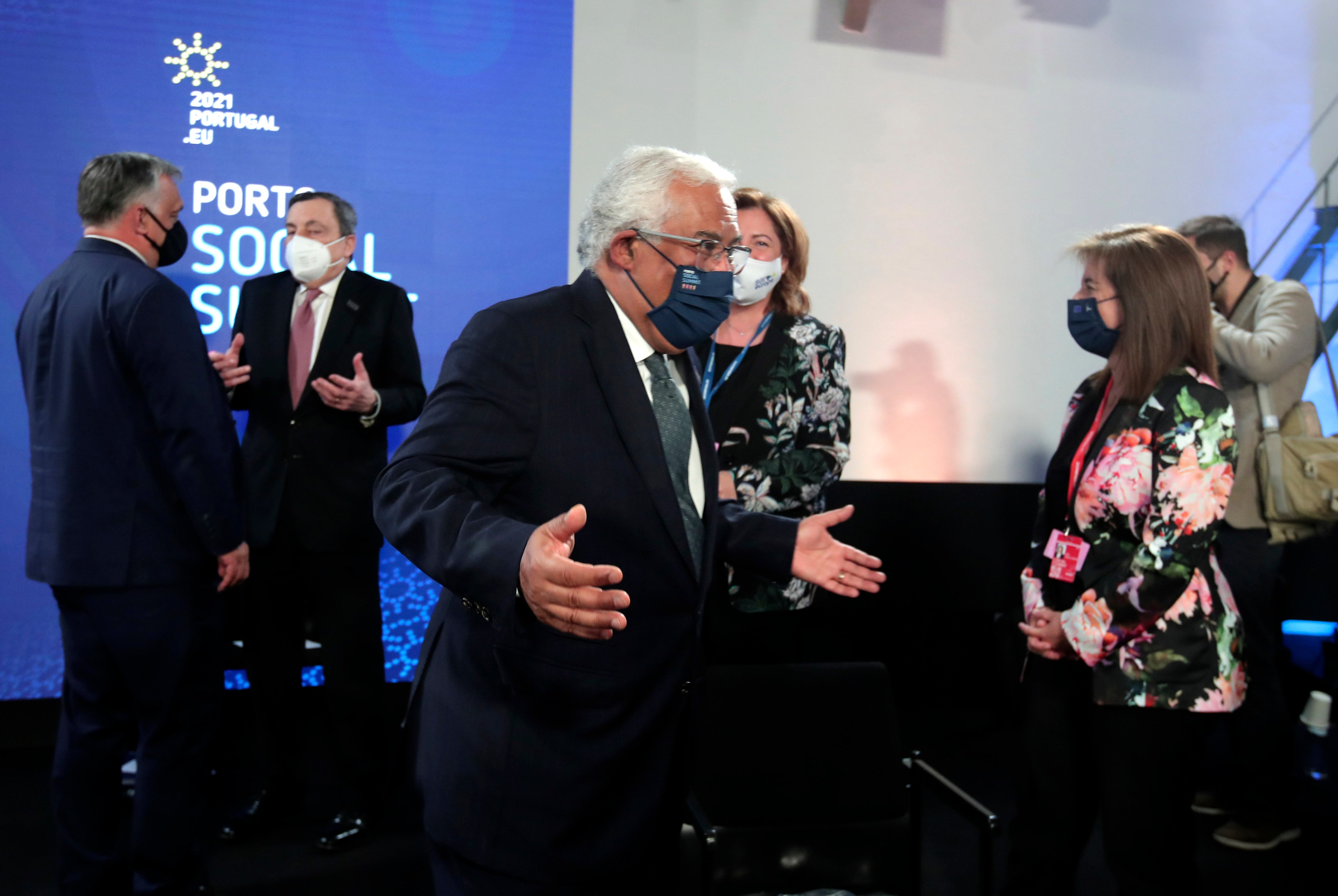EU chided for not ensuring improved social rights at summit
The COVID-19 pandemic has provided a cue for European Union leaders to add some muscle to the bloc's safeguards for its 450 million citizens in welfare, jobs and gender equality

Your support helps us to tell the story
From reproductive rights to climate change to Big Tech, The Independent is on the ground when the story is developing. Whether it's investigating the financials of Elon Musk's pro-Trump PAC or producing our latest documentary, 'The A Word', which shines a light on the American women fighting for reproductive rights, we know how important it is to parse out the facts from the messaging.
At such a critical moment in US history, we need reporters on the ground. Your donation allows us to keep sending journalists to speak to both sides of the story.
The Independent is trusted by Americans across the entire political spectrum. And unlike many other quality news outlets, we choose not to lock Americans out of our reporting and analysis with paywalls. We believe quality journalism should be available to everyone, paid for by those who can afford it.
Your support makes all the difference.Hardship felt during the COVID-19 pandemic has spurred European Union leaders to add muscle to the bloc's safeguards for its 450 million citizens in welfare, jobs and gender equality.
But not everybody’s impressed by their good intentions, which are non-binding for the bloc's 27 governments.
EU leaders held a summit in Porto Portugal on Friday to discuss how they can ensure “equal opportunities for all and that no one is left behind.”
The plans and promises contained in a summit draft declaration on social rights, obtained by The Associated Press, are ambitious.
“As Europe gradually recovers from the COVID-19 pandemic, the priority will be to move from protecting to creating jobs and to improve job quality,” the declaration states.
The leaders say they are “committed to reducing inequalities, defending fair wages, fighting social exclusion and tackling poverty.”
They also vow to “step up efforts to fight discrimination and work actively to close gender gaps in employment, pay and pensions.”
However, the U.N. special rapporteur on extreme poverty and human rights, Olivier De Schutter, was critical of the plan, saying in a statement it is “insufficiently ambitious.”
That’s because countries which miss targets in the plan suffer no consequences. Also, there is no mechanism for Europeans to hold their governments accountable if they don’t abide by the program.
Already, 11 EU countries last week reminded European authorities that social policy is set by sovereign national governments, not Brussels — suggesting they don't feel obliged to comply with the program.
The European Trade Union Confederation, which represents 45 million members in 38 European countries, rebuked the 27 EU leaders, too.
Its general secretary, Luca Visentini, said that “less talk and more action (is) needed” from governments.
“We have to be very clear that legislation and money are the only things that can really make a difference. All the rest is blah blah,” Visentini said in a statement.